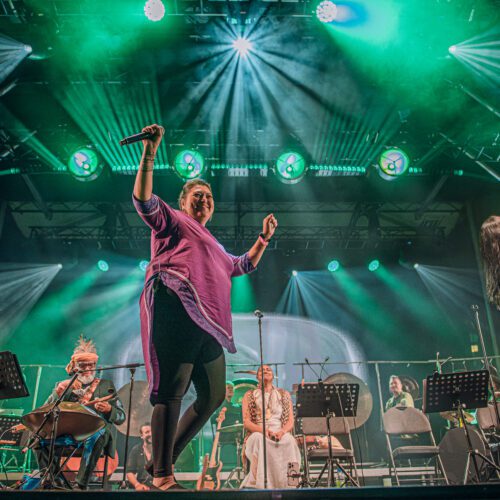The music of Canadian Sean Clarke is expressed through a free tonal painting, which comes and goes between uprooted sequences and others, harmonically linked. Clarke’s main concern is color and natural development, subtly felt, and above all not provoked by any rigid system. It is, therefore, essentially delicate, Webernian music, in half-tones and subtle phrasings. This approach is clearly noticeable in the title piece, in two movements, A Flower for my Daughter, a work of great gentleness for piano that reveals, without surprising us, Clarke’s elective affinities with, also, Debussy. Elsewhere, we can perceive the composer’s connection with his contemporaries Saariaho, or a little Peteris Vasks. Perhaps also Feldman. The rest of the program again reflects the composer’s very intimate aesthetic, in evanescent, contemplative pieces, such as The Christmas Bells From Hill to Hill, or Winter Light, Castle Mountain.
The same secret life, revealed with modesty, is unveiled in the only two pieces for an instrument other than piano: Mountain Hymnal, haunting music for flute and enhanced resonance (which gives the impression of watching a musician performing in front of a vast and soothing landscape), and Ballade, for guitar. Three Nocturnes, After Monet, brings us back to Debussy again, but to his Nocturnes for orchestra, which have a say in the inspiration of this triptych, more muscular, discursively, than the other solo piano compositions. Franey Trail, for piano and soprano, is a nine-minute mini-opera, featuring the character of Clara, 71, whose son died in the Second World War, and who remembers him on the eve of what would have been his 50th birthday. Touching and occasionally the scene of the most densely constructed, and emotionally intense, measures of the program.
Roger Feria Jr.’s piano playing, Talia Fuchs’ soprano, Sean Clarke’s own flute playing, and Nathan Brederson’s guitar are all excellent and thoughtful.
An album that unfolds sounds and colors as fragile as wisps of mist in the morning air, but that we rush to contemplate, in order to fully appreciate their refined skill before they disappear.























